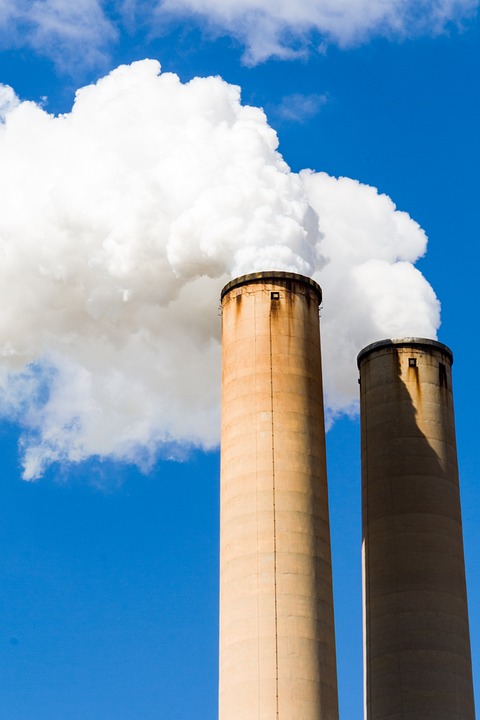How Does Deforestation Affect Global Warming?
Deforestation is a critical environmental issue that significantly contributes to global warming and climate change. As forests are cleared for agriculture, urbanization, and logging, the delicate balance of our planet’s ecosystems is disrupted. This blog explores the multifaceted relationship between deforestation and global warming, highlighting its causes, impacts, and potential solutions.
Understanding Deforestation
Definition and Causes
Deforestation refers to the large-scale removal of trees from forested areas, often resulting in damage to the quality of the land. The primary causes include:
– Agriculture: Expanding agricultural lands account for nearly 90% of global deforestation.
– Urbanization: Growing cities require land for housing and infrastructure.
– Logging: Both legal and illegal logging operations contribute significantly to forest loss.
Statistics on Global Deforestation Rates
According to recent data, approximately 10 million hectares of forest are lost each year, with tropical regions experiencing the most severe impacts. The Amazon rainforest, often referred to as the “lungs of the Earth,” is particularly vulnerable, nearing a tipping point where it may transition into a degraded savanna if deforestation continues at its current rate.
The Role of Trees in Carbon Sequestration
Trees play a vital role in mitigating climate change through carbon sequestration. They absorb carbon dioxide (CO₂) from the atmosphere during photosynthesis, storing it in their biomass and releasing oxygen. Forests are responsible for storing about 80% of the world’s terrestrial carbon, making them essential for maintaining atmospheric carbon balance.
Impact of Deforestation on Carbon Emissions
When forests are cleared, not only is the stored carbon released back into the atmosphere as CO₂, but additional emissions occur from soil disturbance and biomass burning. This release significantly contributes to increased greenhouse gas concentrations, exacerbating global warming. Deforestation is considered one of the largest sources of anthropogenic CO₂ emissions.
Effects on Biodiversity and Ecosystems
Deforestation leads to habitat loss and threatens countless species with extinction. The loss of biodiversity undermines ecosystem services such as pollination, water purification, and soil fertility. These services are crucial for human survival and economic stability.
Feedback Loops and Climate Change
Deforestation creates feedback loops that amplify climate change:
– Loss of Cooling Shade: Fewer trees mean less shade and higher temperatures.
– Changes in Albedo: Clearing forests alters land surface reflectivity, leading to increased heat absorption.
– Extreme Weather Events: Deforestation can intensify droughts, floods, and storms by disrupting local weather patterns.
Social and Economic Implications
The impacts of deforestation extend beyond environmental concerns; they affect communities and economies:
– Indigenous Peoples: Many indigenous communities depend on forests for their livelihoods and cultural identity.
– Local Economies: Forest loss can lead to economic instability as resources become scarce.
The relationship between economic development and environmental degradation often results in short-term gains at the expense of long-term sustainability.
Mitigation Strategies
To combat deforestation and its effects on global warming, several strategies can be employed:
– Reforestation: Planting trees in deforested areas helps restore ecosystems and sequester carbon.
– Sustainable Land Use Practices: Implementing responsible forestry practices minimizes environmental impact while meeting human needs.
– Protected Areas: Establishing conservation areas helps preserve critical habitats from human encroachment.
FAQs
– How does deforestation contribute to global warming?
Deforestation releases stored carbon dioxide into the atmosphere while reducing the number of trees available to absorb CO₂.
– What are the long-term effects of deforestation on climate?
Long-term effects include accelerated global warming, increased frequency of extreme weather events, and irreversible biodiversity loss.
– Can reforestation help mitigate climate change?
Yes, reforestation can significantly contribute to carbon sequestration and restore ecological balance.
– What role do governments and organizations play in addressing deforestation?
Governments can enact policies to protect forests while organizations can advocate for sustainable practices and raise awareness.
– How can individuals contribute to reducing deforestation?
Individuals can support sustainable products, engage in tree planting initiatives, and advocate for policies that protect forests.
Conclusion
Deforestation poses a significant threat to our planet’s climate stability. Understanding its impacts on global warming is crucial for fostering awareness and promoting sustainable practices. Collective action from individuals, communities, governments, and organizations is essential to combat this pressing issue effectively. By prioritizing forest conservation and restoration efforts, we can work towards a more sustainable future for our planet.

Kyle Whyte is a notable scholar and professor at the University of Michigan, holding positions such as the George Willis Pack Professor in the School for Environment and Sustainability and Professor of Philosophy. Specializing in environmental justice, his work critically examines climate policy and Indigenous peoples’ ethics, emphasizing the nexus between cooperative scientific endeavors and Indigenous justice. As an enrolled Citizen Potawatomi Nation member, he brings a vital perspective to his roles as a U.S. Science Envoy and member of the White House Environmental Justice Advisory Council. His influential research is supported by various prestigious organizations including the National Science Foundation, and disseminated through publications in high-impact journals. Kyle actively contributes to global Indigenous research methodologies and education, with affiliations to numerous institutes and societies dedicated to traditional knowledge and sustainability. Recognized for his academic and community engagement, Kyle has earned multiple awards and served in various visiting professorships. His efforts extend to leadership positions on boards and committees focused on environmental justice nationwide.
